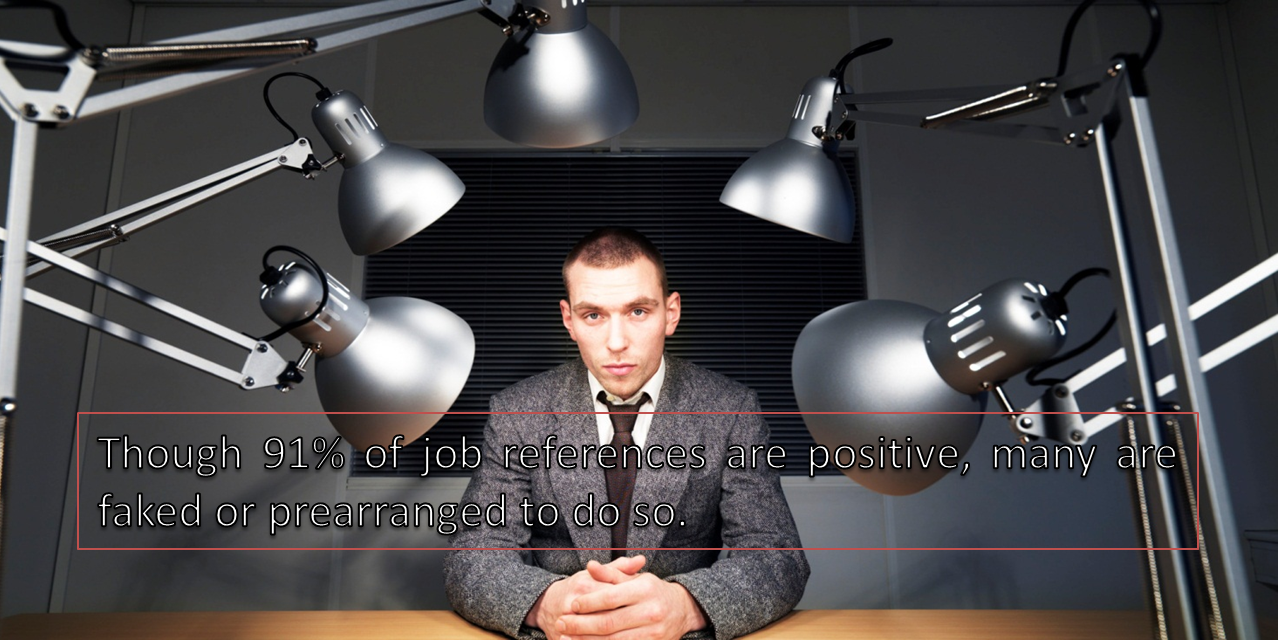In this age, recruitment has gone digital. Because hiring teams have embraced digital resumes on such sites as Linkedln, they have also embraced digital references. Glancing at Linkedln profile of a candidate will show whether his/ her connections have reviewed him/ her. Most of the time, candidates have featured collections of endorsements and reviews as large as their connection network. It seems like you rock when finding a candidate with hundreds of recommendations. Still, are those employee references still reliable in an age that businesses can get prevalent fake reviews?
Watch out for fake job references

91% of the job references are positive
There would be someone who wants to brand himself/ herself to employers by creating an impressive resume with just the same impressive list of job references on Linkedln. What matters is that almost none of those people actually worked with him/ her. If employers dig a bit deeper, they will find out what isn’t genuine with the list. For example, they may discover that most of his/ her positions were just 6 months in length. Then where do those references come from? Of course, family and friends.
Bogus employee references are not just restricted to the candidates that fake their resumes. Family, friends, and even vendors give recommendations on Linkedlin for various reasons. In many cases, they are looking to fortify their own profile. Many people think by giving favorable job references, they can receive endorsements and recommendations in return.
That can reason why a shocking 91% of job references are positive, although many are faked or pre-arranged to do so. It is the same as trading Facebook likes.
⇒ How to find what job references are relevant?
With many bogus job references out there, it is significant to figure out what is relevant. Many recruiting managers skip this step though, it can be an important way to differentiate two seemingly great job candidates. It will make you a little like a detective, though.

- Examine whether any of the connections recommending the candidate actually worked with him
Start by doing so. Then dig a bit deeper – did that person work with him in a team or was that person is a whole other department? Is this recommendation or endorsement from a partner, vendor or frequent customer? Is there any connection to his job at all?
- Giving an attitudinal interview
Another way to find what references are relevant is to give the attitudinal interview. Many top-notch employers use video interviewing for that purpose. When there are many steps in the video interviewing process, the attitudinal interview is a great fashion to check out relevancy of those job references. Many top employees would like to give role play scenarios and ask the candidate to give a solution. In other video interviews, some recruiting manager will give the candidate real software or work and ask probing questions on how to proceed. If the candidate isn’t completely honest, he often exposes half-truths or exaggerations in his skill set. With the video medium, it is also easier for recruiters to seek out if this is a person that becomes snippy and rude when he is frustrated, or if he is calm and collected. The video interviewing process can be a far better manner to get candidate information than job references alone. If they are used together, it can be a very effective way for recruiting managers to find out the best candidate.












Replies to This Discussion